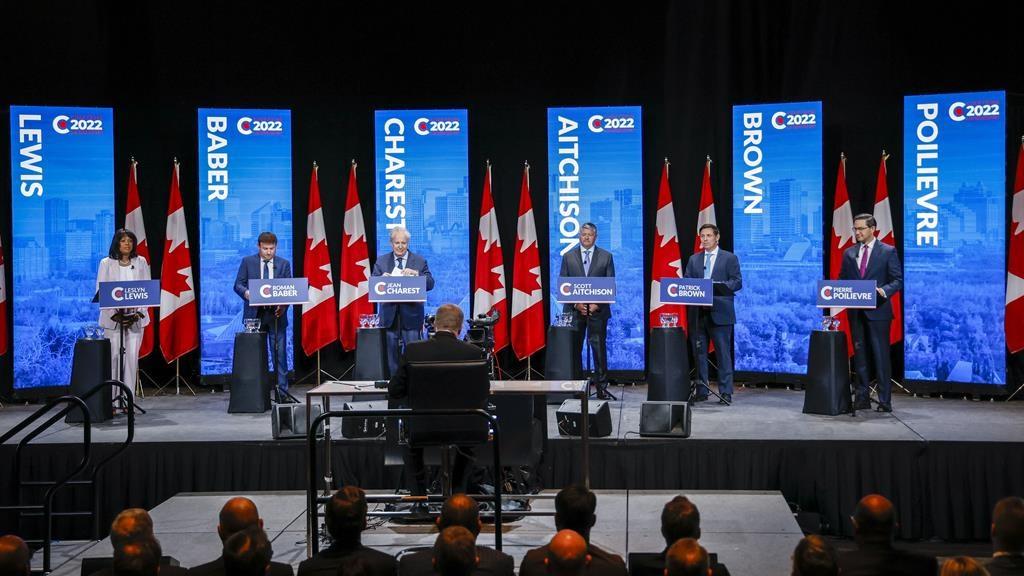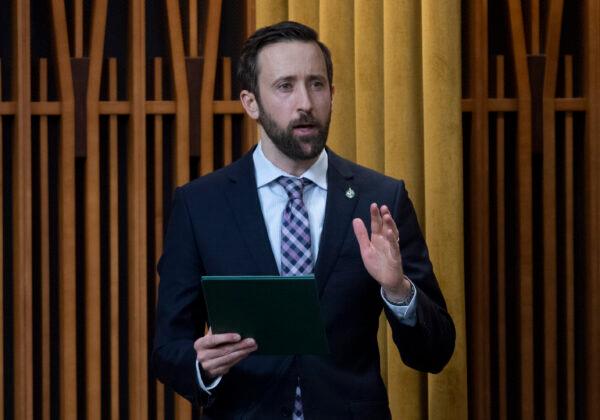The candidates running in the Conservative leadership election convened in Edmonton on May 11 for their first official debate in English.
The debate wasn’t as contentious as the last week’s unofficial debate hosted by Canada Strong and Free, but still the candidates took the occasional jabs at each other while putting forth arguments on why they are the one to beat the Liberal government in the next election.





